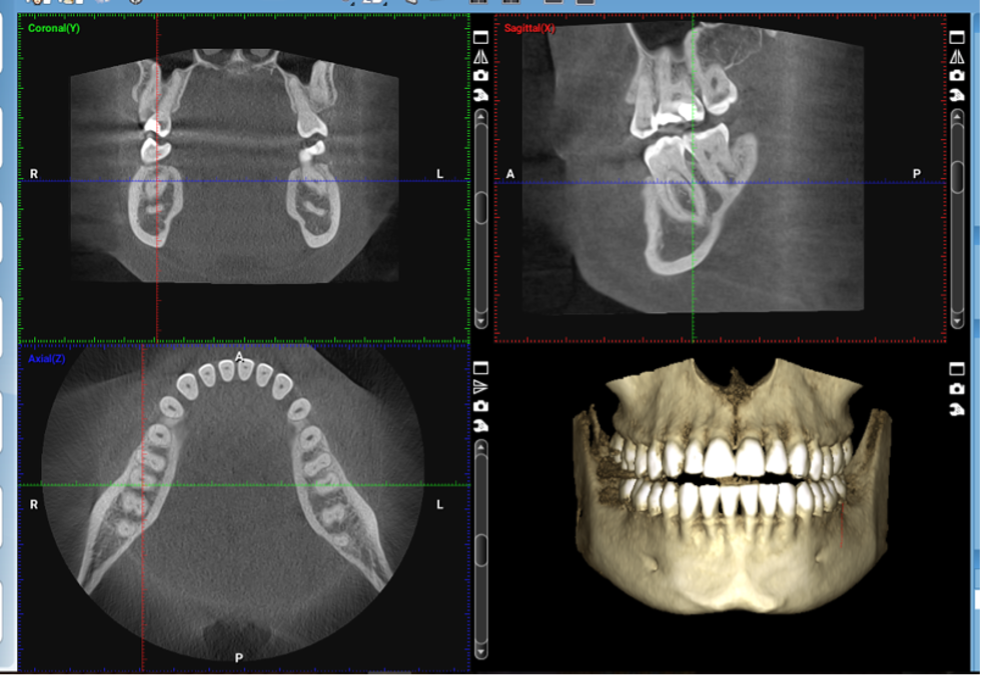An accurate diagnosis is critical to successful treatment.
Would you try to patch a car tire without knowing what caused the leak or where the leak started? How about trying to fix the engine of a car without determining what is exactly the source of the problem? Today, several tests are used to make an informed diagnosis.
In this article, we will discuss how the proper diagnosis determines accurate and successful treatment.
The majority of the dental problems are caused by bacterial diseases; such as periodontal diseases and tooth decay. These dental diseases are able to be tested, evaluated and in many cases eliminated. The accuracy of this process requires a proper diagnosis. This means we can provide for our patients the appropriate diagnostic protocols which are critical in determining the success of each treatment.
Diagnosis is the process of determining the specific disease or condition. A diagnostic test uses laboratory equipment to measure and confirm the presence or likelihood of a certain bacteria. This is critical to the success of your dental treatment because we cannot treat what we do not know.
We can analyze the bacteria in your mouth.
Specific bacteria have been identified that cause severe bone destruction around teeth in periodontal disease and in tooth decay. There is a simple saliva test taken by a swab or below your gum line (in pockets) that is sent to a laboratory which identify specific germs and how pathogenic or infective your bacteria.
What’s the role of your immune system?
Although bacteria are present and can be measured the other side of the story is your immune system. Your immune system is your ability to fight off disease. When we are younger, we tend to have a stronger immune system, signified by how fast we heal. However, as we age, we heal a little bit slower. Therefore, the process is two-fold. We need to identify the type of bacteria in our mouths as well as we need to know the number of disease-causing bacteria.
What about my genetic makeup?
At Center for Specialized Dentistry, patients frequently asked questions about the how their genetic makeup factors in:
- “Can I catch gum disease or get cavities from kissing or using someone else’s tooth brush?”
- “Did I get this disease from my parents? Can I pass it on to my children?”
Firstly, your genetic make-up is a major factor in determining your likelihood in generally attracting diseases.
Secondly, studies show that although the bad bacteria may be transferred during a kiss or toothbrush use the number of bacteria transferred is too low to cause disease to be transferred to the next person. For the disease process to begin the person’s immune system would have to be compromised and their genetic makeup susceptible.
In summary, wouldn’t it be great to know about the bacteria that may affect the diagnosis of your dental disease? Similarly, when you visit your medical doctor for an infection before any treatment is administered, they usually find out the strain of bug or your genetic susceptibility. Such tests are available in dentistry. With a simple saliva swab, we can identify certain bacteria, determine the quantity and learn about the strength of your immune system to fight it.
Advanced technology and information made available, your treatment course can be planned, which will improve effectiveness and give you a better chance to save your teeth. Also, it allows the dentist to better determine your ability to heal after surgical procedures, better tailoring your treatment.
Dr. Kendal V. O. Major is Founder and CEO of Center for Specialized Dentistry which is a comprehensive family dental practice operating in Nassau and Freeport. He is the first Bahamian Specialist in gum diseases and dental implants since 1989. He also is a certified Fastbraces provider. His practice is located at 89 Collins Avenue, Nassau at (242)325-5165 or [email protected].





